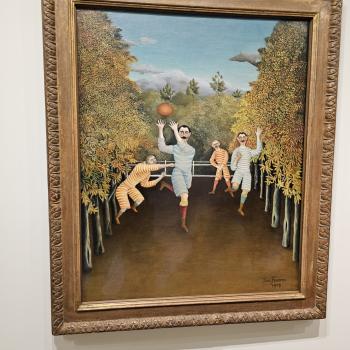 Roman swords and sandals epics have become more frequently seen attractions on the silver screen ever since the major success of Gladiator. ‘The Eagle’ is another such tale, based on the true story of the disappearance of the Ninth Legion (Hispania) in what we today call Scotland. The time is 140 A.D., Hadrian’s wall divides England from Scotland, and for one hour and 54 minutes we are presented with the tale of Marcus Flavius Aquila (the last name in fact means eagle) who has come to Briton to redeem the honor of his family name, for his father had been the leader of that lost legion. The movie chronicles the search of Marcus for the lost Eagle, the symbol of Rome, a search which takes him well beyond Hadrian’s wall where he must deal with Brigantes and the Seal people and others. What shall we say about this ‘history’ film with epic sweep, that appeals to the virtues of ‘honor and faithfulness’ (honores/ fidelis)?
Roman swords and sandals epics have become more frequently seen attractions on the silver screen ever since the major success of Gladiator. ‘The Eagle’ is another such tale, based on the true story of the disappearance of the Ninth Legion (Hispania) in what we today call Scotland. The time is 140 A.D., Hadrian’s wall divides England from Scotland, and for one hour and 54 minutes we are presented with the tale of Marcus Flavius Aquila (the last name in fact means eagle) who has come to Briton to redeem the honor of his family name, for his father had been the leader of that lost legion. The movie chronicles the search of Marcus for the lost Eagle, the symbol of Rome, a search which takes him well beyond Hadrian’s wall where he must deal with Brigantes and the Seal people and others. What shall we say about this ‘history’ film with epic sweep, that appeals to the virtues of ‘honor and faithfulness’ (honores/ fidelis)?
Firstly I must say that the visuals of this film are excellent, especially the beautiful scenes from the highlands of Scotland. And for the most part, the film makers have tried to give us an authentic look at Romans in Briton during this period, and the tribes they encountered. Secondly, despite some laments from some film critics, this movie is not too long at an hour and 54 minutes. It builds momentum slowly as Marcus and his slave Eska make their long and winding journey in search of what happened to the Ninth Legion and its standard.
It was Paul Tillich who once said that the difference between a sign and a symbol is that a symbol participates in that to which it points, say like the American flag. So it is that if ‘the eagle is lost, honor is lost, and if honor is lost, all is lost’, as one Roman in the film says quite rightly. Festering in the heart of Marcus is the need to win back the honor of his family name by finding that eagle and finding out what happened to his father and his legion. And so, he will not accept an honorable discharge after serving bravely in Briton, no he will go and try and regain honor. In an honor and shame culture, honor, not truth not even life is the top value in the ethical hierarchy of values, something you would give your life for, and even tell a lie for.
Some critics have also complained about Channing Tatum’s some what stoic and stolid portrayal of a leader of a Roman legion, but then many such military leaders were and are like that. I actually thought he did a good job of not over-acting, but rather letting his bravery and honor speak for him. He portrays a noble Roman more than adequately, and complaints about his accent are absurd. This is a movie in English for the English-speaking world. And whether the soldier has an American English accent or a British English accent or an Aussie accent is quite beside the point— none of them sound like ancient Romans speaking Latin, so there isn’t an authenticity issue at all, unless you complain it’s an issue with everyone in the film. I also enjoyed the role Donald Sutherland plays in this film as Marcus’ friendly uncle who looks after him as he convalesces from a wound.
The heart of this film, and it does have a heart, is the growing relationship between Marcus and Eska, the Brigante whose life Marcus saved in the Roman games he was forced to participate in against a gladiator. But Eska refused to fight, refused to co-operate with making someone’s life a game or sport for others to watch, thus showing his own nobility. Marcus is so impressed he insists he must be spared the sword. My one historical complaint is that when the crowd spares him it should have been thumbs down, not thumbs up, because in the Roman arena actually thumbs down meant spare the man, not thumbs up, despite our own modern interpretations of that gesture.
What we see develop as Eska and Marcus journey north is a growing relationship of respect and comradeship, and eventually of loyalty and kindness in the midst of mayhem and danger. Both men prove true to their word and as good as their word. While this is by no means a great film, in the dead zone of movies that usually appear in January or Feburary, this is a decent film, worth watching if you care about the Greco-Roman world in which Christianity became the dominant religion. It is a film the men who fought at Iwo Jima in WWII could readily identify with— find the lost flag and raise it, and defend its honor. That approach to life is as old as Rome and as new as today.
















